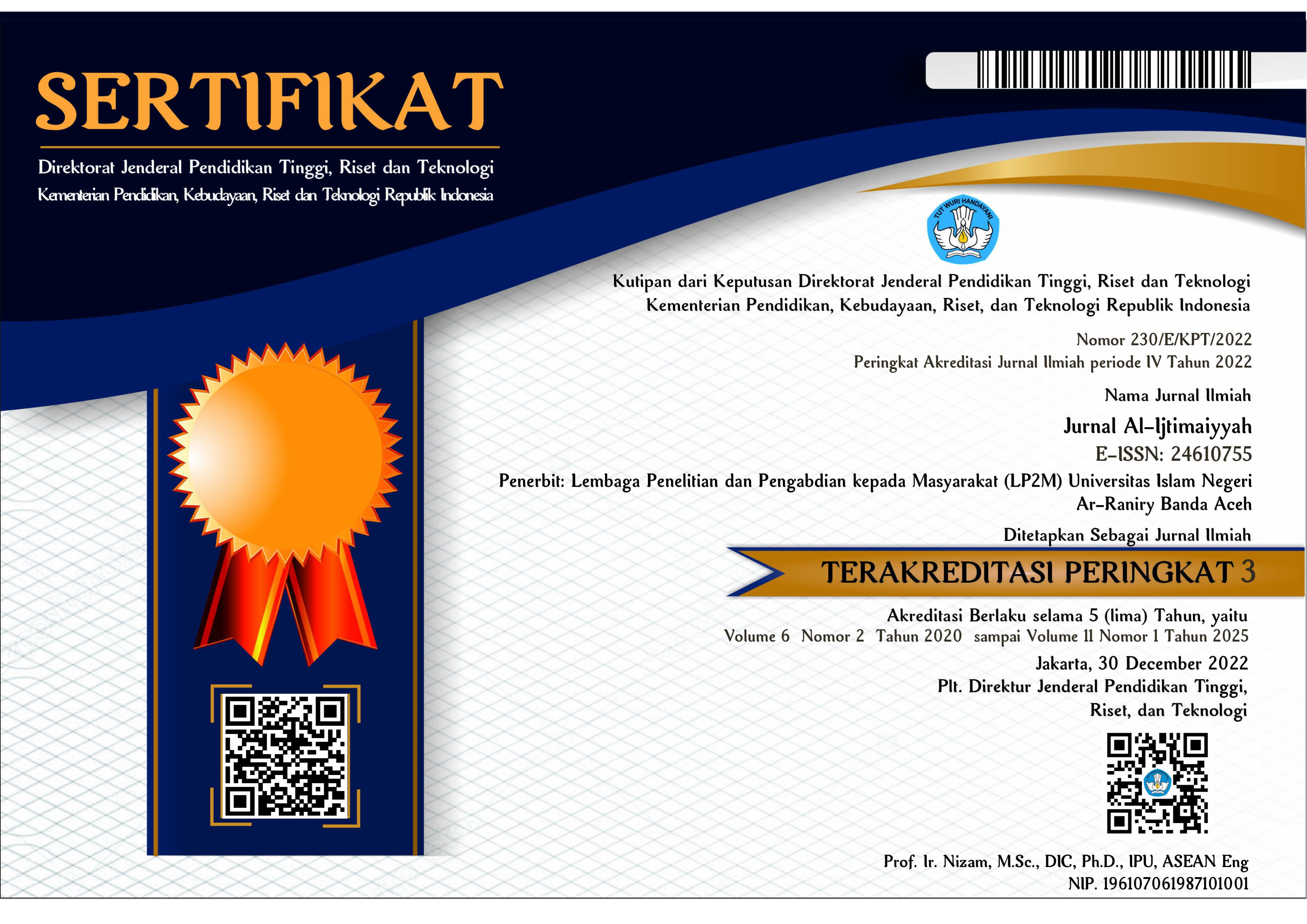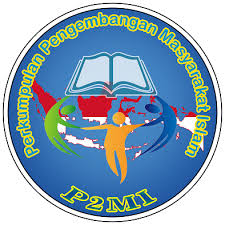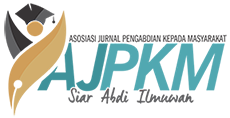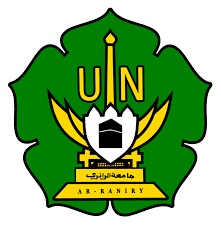PEMBERDAYAAN EKONOMI KELUARGA MELALUI BUDIDAYA TIRAM DI GAMPONG TIBANG KECAMATAN SYIAH KUALA KOTA BANDA ACEH
DOI:
https://doi.org/10.22373/al-ijtimaiyyah.v4i1.4208Abstract
This study examines the economic empowerment of families through the cultivation of oysters in Tibang Village. The potential of the people who work as fishermen have not fulfilled their basic family needs. Non-permanent fishing and the price that has fluctuated, has encouraged people to look for alternative businesses to increase income, including through the cultivation of oysters. This study aims to determine how the family oyster cultivation mechanism, as well as the economic condition of the family before and after conducting oyster cultivation in Tibang Village, Syiah Kuala District, Banda Aceh City. This study uses a descriptive method with a qualitative approach. The results of the study show that there are 40 families involved in the cultivation of oysters, this process makes it easy and practical to make the community always meet market demand because the supply of goods or oysters is sufficient. The process of cultivating oysters in Tibang Village through five stages, namely: land preparation, breeding, maintenance, harvesting and the final stage, namely cultivation. Oyster cultivation has also succeeded in increasing the economy of the community between housework. The average income of each family is Rp. 50,000 to Rp. 100,000 per day and this is done consistently because it does not depend on the season.
Keywords: Family Eeconomic Empowerment, Oyster Cultivation
Downloads
References
Badan Pusat Statistik Provinsi Aceh, Aceh dalam Angka 2016.
Burhan Bungin, Penelitian Kualitatif Komunikasi Ekonomi Kebijakan Publik dan Ilmu Sosial Lainnya, Jakarta: Kencana, 2011.
Burhan Bungin, Metode Penelitian Kualitatif: Aktualisasi Metodologis ke Arah Ragam Varian Kontemporer, Jakarta: Raja Grafindo Persada, 2006.
Conny Semiawan, Metode Penelitian Kualitatif, Jakarta: Gramedia, 2010.
Etta Mamang Sengaji, Sopiah, Metode Penelitian Pendekatan Praktis Dalam Penelitian, Yogyakarta: Andi, 2010.
Husen Umar, Metode Riset Komunikasi Organisasi, Jakarta: Gramedia Pustaka Utama), 2005.
Imam Suprayoga, Tabroni, Metode Penelitian Agama, Bandung: Remaja Rosdakarya, 2003.
Juliansyah Noor, Metodelogi Penelitian: Skripsi, Tesis, Disertasi, dan Karya Ilmiah, Ed, 1, Cet. 1, Jakarta: Kencana Prenada Media Group, 2011.
Joko Subagyo, Metode Penelitian dalam Teori dan Praktek, Jakarta: Renika Cipta, 2004.
Lexy J Moleong, Metodelogi Penelitian Kualitatif, Bandung: Remaja Rosdakarya, 2004.
Nasir Budiman, dkk., Pedoman Penulisan Karya Ilmiah, Banda Aceh: Ar-Raniry, 2004.
Soejono dan Abdurrahman, Metode Penelitian Suatu Pemikiran dan Penerapan, Cet. 2, (Jakarta: Rineka Cipta dan Bina Adiaksara), 2005.
Sugiyono, Metode Penelitian Kualitatif dan Kuantitatif dan R & D, Bandung: Alfabeta, 2013.
Tiram Budidaya di Tibang Target Ekspor, Serambi Indonesia, 11 Desember 2015.
Zulkarnaen, Membangun Ekonomi Rakyat (Persepsi Tentang Pemberdayaan Ekonomi Rakyat), Yogyakarta: Adi Cita Karya Nusa, 2003.
Downloads
Published
Issue
Section
License
Copyright (c) 2018 Rasyidah, Nurul Husna, Liza Safrianti

This work is licensed under a Creative Commons Attribution-ShareAlike 4.0 International License.
Authors who publish in Jurnal Al-Ijtimaiyyah agree to the following terms:
- Authors retain copyright and grant the journal right of first publication with the work simultaneously licensed Attribution-ShareAlike 4.0 International (CC BY-SA 4.0) that allows others to share the work with an acknowledgment of the work's authorship and initial publication in this journal.
- Authors are able to enter into separate, additional contractual arrangements for the non-exclusive distribution of the journal's published version of the work (e.g., post it to an institutional repository or publish it in a book), with an acknowledgment of its initial publication in this journal.
- Authors are permitted and encouraged to post their work online (e.g., in institutional repositories or on their website) prior to and during the submission process, as it can lead to productive exchanges, as well as earlier and greater citation of published work. (See The Effect of Open Acces)










